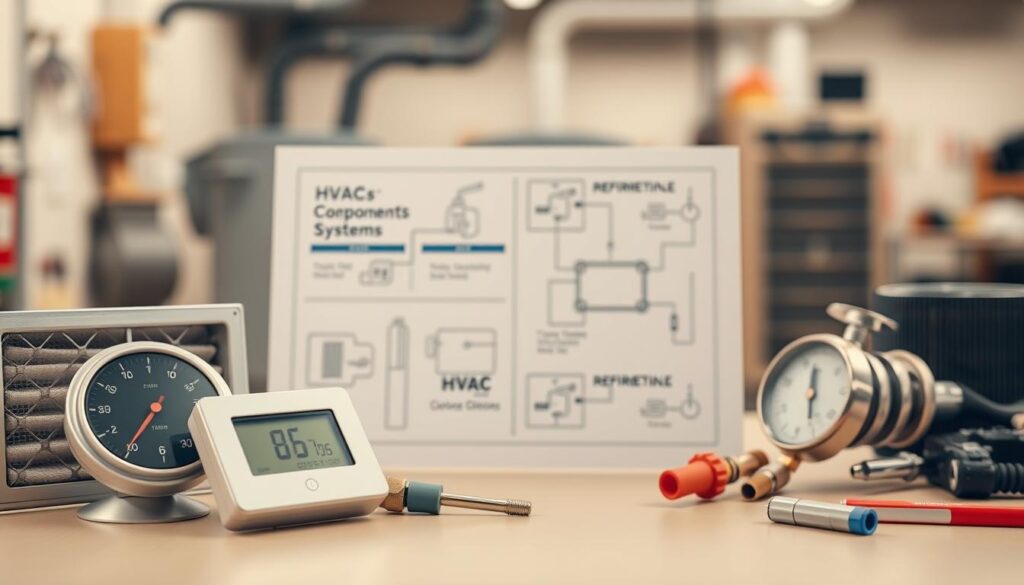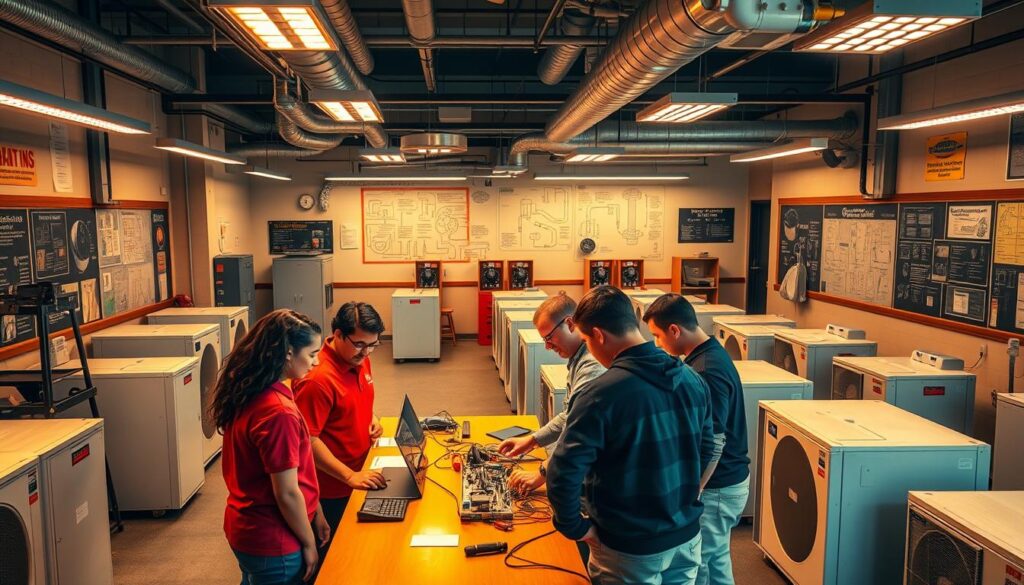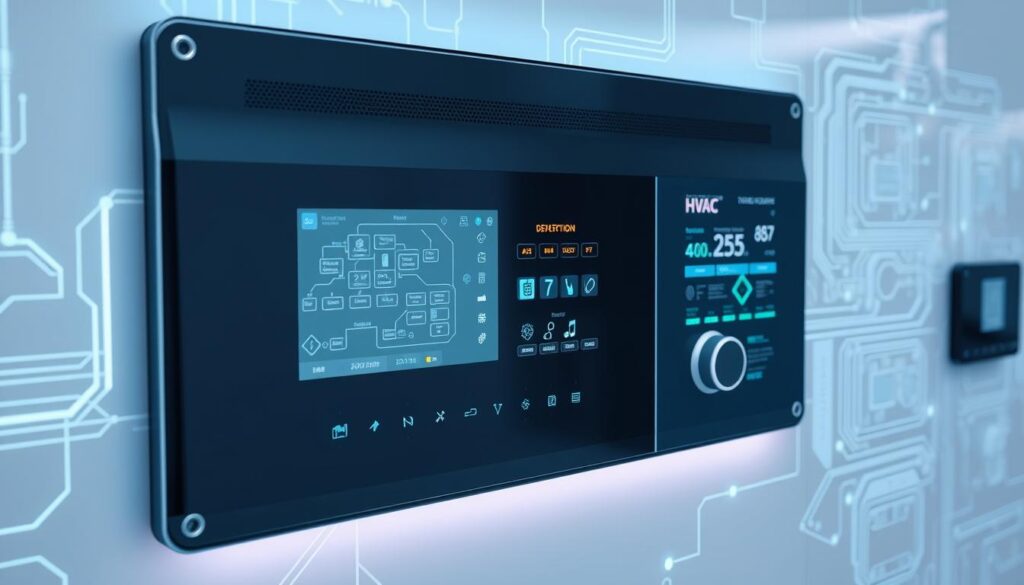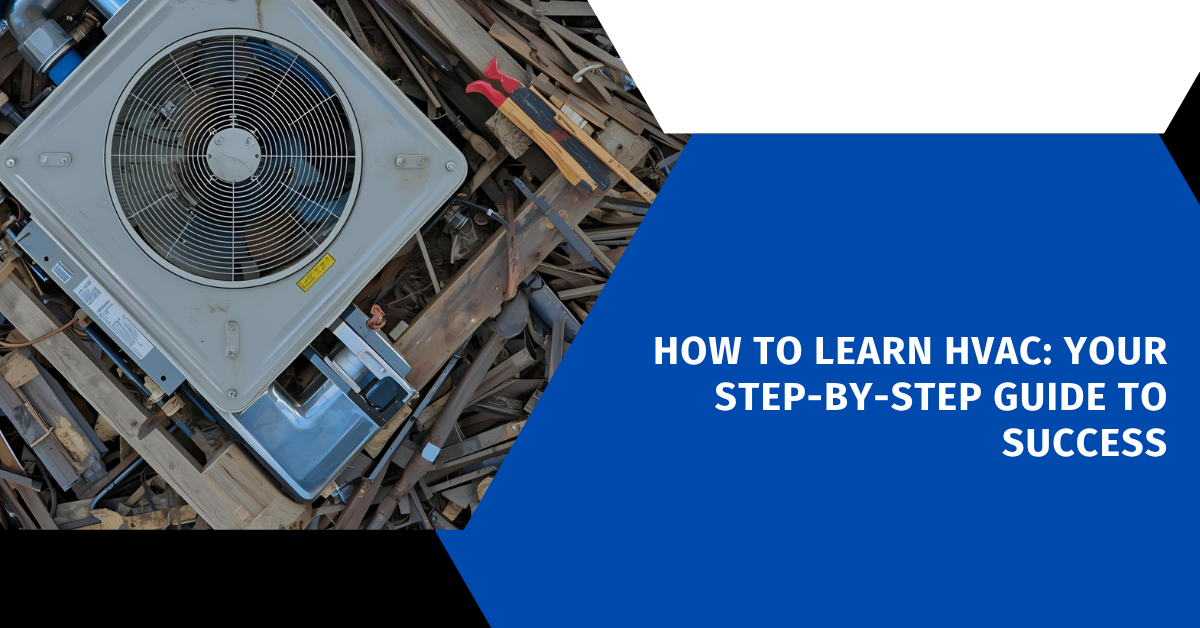Affiliate Disclosure
HVAC Guide Guys is a participant in the Amazon Services LLC Associates Program, an affiliate advertising program designed to provide a means for sites to earn advertising fees by advertising and linking to Amazon.
How to Learn HVAC? Are you ready to dive into a career that keeps the world comfortable and running smoothly? What if you could master a skill that is always in demand and offers incredible opportunities for growth?

Learning HVAC is more than just understanding heating and cooling systems. It’s about becoming a crucial professional who ensures comfort and efficiency in residential, commercial, and industrial spaces. The HVAC industry is rapidly expanding, with increasing demand for skilled technicians who can navigate complex systems and emerging green technologies.
Whether you’re a beginner looking to start your journey in how to learn HVAC or someone seeking a stable and rewarding career path, this guide will provide you with a comprehensive roadmap to success in the HVAC field.
Key Takeaways
- HVAC offers stable and growing career opportunities
- Technical skills and hands-on training are essential
- Multiple learning paths exist for HVAC for beginners
- Certification is crucial for professional advancement
- Green technologies are transforming the HVAC industry
Table of Contents
Understanding the HVAC Industry Fundamentals
The HVAC industry is key to keeping places comfortable and energy-smart. Knowing the basics is vital for success in HVAC programs.
Types of HVAC Systems and Components
There are many HVAC systems, each for different needs. You’ll find:
- Split Systems
- Packaged Units
- Ductless Mini-Split Systems
- Geothermal Heat Pump Systems
These systems have important parts like compressors and digital controls. They help manage temperatures well.
Essential Technical Knowledge Requirements
HVAC pros need to know a lot. They must understand electrical systems, refrigeration, and how to diagnose problems.
| Technical Skill Area | Core Competencies |
|---|---|
| Electrical Systems | Wiring, circuit analysis, control mechanisms |
| Refrigeration | Thermodynamic principles, coolant management |
| Digital Diagnostics | Smart system troubleshooting, sensor calibration |
Industry Standards and Regulations
Knowing the rules is important for HVAC workers. Getting EPA certification is key. It shows they know about environmental safety and handling refrigerants.
To keep up, HVAC pros need to keep learning. They should take part in recognized programs and stay updated on new tech in climate control and energy saving.
Explore Our HVAC Shop
Looking for top-rated HVAC tools, parts, and accessories? Visit our shop and find the perfect solution for your needs.
Visit the ShopCareer Opportunities in the HVAC Field
Becoming an HVAC technician opens up a world of exciting career possibilities. The demand for skilled HVAC professionals is growing fast. This offers many paths for those interested in this dynamic field.
The U.S. Bureau of Labor Statistics predicts a bright future for HVAC technicians. They expect a 9% growth rate from 2023 to 2033. This means lots of job opportunities in different sectors.
- Residential HVAC Installer
- Commercial HVAC Maintenance Technician
- Industrial Refrigeration Specialist
- HVAC Systems Engineer
- Building Automation Technician
When you become an HVAC technician, you can choose from many specializations. The median annual salary is $57,300. This makes it a great career choice for financial stability and growth.
| HVAC Specialization | Average Annual Salary | Primary Work Environment |
|---|---|---|
| Residential HVAC Technician | $55,000 | Homes and Residential Buildings |
| Commercial HVAC Engineer | $68,000 | Office Buildings, Retail Spaces |
| Industrial Refrigeration Specialist | $62,000 | Manufacturing, Food Processing |
| Smart Building Automation Technician | $65,000 | Advanced Commercial Facilities |
Your career as an HVAC technician can lead to many opportunities. With experience and more certifications, you can move up. You can become a senior technician, manager, or even start your own HVAC business.
Explore Our HVAC Shop
Looking for top-rated HVAC tools, parts, and accessories? Visit our shop and find the perfect solution for your needs.
Visit the ShopEducational Requirements and Prerequisites
To start a successful HVAC career, you need to meet certain educational and physical needs. First, you must understand the basic requirements for HVAC training courses.
High School Diploma or Equivalent
Having a strong educational base is key for HVAC technicians. Most employers and training programs require:
- A high school diploma or GED certificate
- At least a 10th-grade education level
- Basic knowledge of academic subjects
Essential Academic Skills
To do well in HVAC training, you need to be good at certain subjects:
- Mathematics: You should know algebra and geometry
- Science: Basic physics and chemistry are important
- Being able to solve problems
- Having strong analytical skills
Physical Requirements and Capabilities
“HVAC work is physically demanding and requires strength, agility, and stamina.” – Professional HVAC Association
Your physical abilities are crucial for success in HVAC. Key physical needs include:
- Being able to lift heavy equipment (up to 50 pounds)
- Comfort in tight spaces
- Good hand-eye coordination
- Excellent manual dexterity
By fulfilling these educational and physical needs, you’re ready to start your HVAC career. You’ll be well-prepared with the right hvac training courses.
How to Learn HVAC Through Training Programs

Choosing the right HVAC training program is key to starting a successful HVAC career. There are many ways to learn HVAC, each offering unique skills for this fast-paced field.
HVAC trade schools offer detailed training programs. They mix theory with hands-on skills, making you job-ready.
- Community college programs
- Vocational training centers
- Online learning platforms
- Hybrid educational models
Learning HVAC online offers flexible options. You can fit your learning into your schedule. Top schools provide digital courses on key technical skills and the latest in HVAC.
| Program Type | Duration | Learning Format |
|---|---|---|
| Certificate Program | 6-12 months | Classroom & Online |
| Associate Degree | 2 years | Hybrid |
| Online Certification | 3-6 months | Fully Digital |
When picking an HVAC program, look at accreditation, hands-on training, and if it meets industry standards. Do your homework to find a program with a solid curriculum and real-world experience.
“The best HVAC programs blend theoretical knowledge with practical skills training.” – HVAC Industry Expert
Your success in HVAC depends on a program that gives you strong technical skills and prepares you for the job.
Explore Our HVAC Shop
Looking for top-rated HVAC tools, parts, and accessories? Visit our shop and find the perfect solution for your needs.
Visit the ShopCertification and Licensing Requirements
Getting into HVAC certification can be tough, but it’s key for a good career. Certifications show you know your stuff and care about your work in heating, ventilation, and air conditioning.
Starting your HVAC journey means knowing what you need to prove your skills. These certifications are not just for show. They’re needed to follow the law and move up in your career.
EPA Section 608 Certification
The EPA certification is a must for HVAC techs working with refrigeration. It shows you’re good at your job and care about the environment. You’ll need to pass a test that covers different refrigerant levels:
- Type I: Small appliances
- Type II: High-pressure appliances
- Type III: Low-pressure appliances
- Universal: Covers all refrigerant types
State-Specific Licensing Requirements
Every state has its own rules for HVAC pros. What you need will depend on where you live. Usually, it involves:
- Finishing approved training
- Passing technical tests
- Showing you’ve worked in the field
- Keeping up with continuing education
Additional Professional Certifications
There are more certifications that can boost your career:
- NATE Certification: North American Technician Excellence
- HVAC Excellence Certification: Shows you’re really skilled
- Manufacturer-specific certifications
Going all in on HVAC certification programs can make you stand out. It opens up more career paths for you.
Developing Essential Technical Skills
Learning HVAC skills on your own takes hard work and smart learning. You need to learn both technical skills and how to be a professional in the field.
Important technical skills for HVAC pros include:
- Electrical and mechanical troubleshooting techniques
- Blueprint and schematic reading
- Equipment installation and maintenance
- Digital diagnostic tool proficiency
- Smart system integration
Starting to learn HVAC skills means understanding the basics. You’ll need to mix theory with real-world practice.
| Skill Category | Key Competencies | Learning Methods |
|---|---|---|
| Mechanical Skills | System diagnostics | Online tutorials, practice kits |
| Electrical Knowledge | Wiring, circuit analysis | Video courses, simulation software |
| Digital Literacy | IoT system understanding | Tech workshops, certification programs |
“Success in HVAC is about continuous learning and adapting to new technologies.” – HVAC Industry Expert
Improving your HVAC skills takes practice, online learning, and real-world training. Spend time learning about complex systems and keep up with new tech. Also, work on solving problems.
Being good at HVAC isn’t just about knowing how things work. You also need to be good at talking to people, serving customers, and managing your time well. These skills are key to a successful HVAC career.
Explore Our HVAC Shop
Looking for top-rated HVAC tools, parts, and accessories? Visit our shop and find the perfect solution for your needs.
Visit the ShopHands-On Experience Through Apprenticeships
HVAC apprenticeships are a great way for future technicians to learn by doing. These programs mix classroom learning with real-world experience. This combination gives you a strong start in the HVAC field.
Finding Apprenticeship Opportunities
Finding good hvac apprenticeships takes some effort and networking. Look for opportunities at:
- Union training centers
- Technical colleges
- Professional HVAC associations
- Online job boards for trade careers
- Directly contacting local HVAC companies
Duration and Requirements
HVAC apprenticeships usually last 3-5 years. You’ll get about 2,000 hours of on-the-job training and 144 hours of classroom learning each year. To start, you’ll need:
- A high school diploma or equivalent
- To be at least 18 years old
- Basic math and mechanical skills
- Good physical health for technical work
Apprentice Responsibilities
As an apprentice, you’ll work with skilled professionals. You’ll learn about installing, maintaining, and fixing systems. Your tasks will grow, helping you become more skilled in HVAC.
Pro Tip: Approach your apprenticeship with enthusiasm, asking questions and demonstrating a commitment to learning.
Modern HVAC Technologies and Trends

The HVAC industry is changing fast with new technologies. These changes are making heating, cooling, and ventilation systems better. To do well in hvac certification programs, you need to know about these new trends.
Smart technologies are making big changes in HVAC systems. You’ll see smart solutions that make systems more efficient and work better. These include:
- Internet of Things (IoT) integrated climate control systems
- AI-powered diagnostic tools
- Remote monitoring capabilities
- Advanced predictive maintenance technologies
Green building is key in HVAC today. Sustainability is no longer optional – it’s a must for HVAC pros. Your training will focus on eco-friendly designs, energy-saving systems, and using renewable tech.
Digital transformation is changing the HVAC world. You’ll need to learn about advanced diagnostic tools, data analytics, and automated system management. These skills are crucial for keeping up in the growing HVAC job market.
“Technology is redefining HVAC – those who learn and adapt will lead the industry.”
New tech like machine learning and advanced sensors are opening up new chances for HVAC pros. Your dedication to learning will help you succeed in this fast-paced field.
Explore Our HVAC Shop
Looking for top-rated HVAC tools, parts, and accessories? Visit our shop and find the perfect solution for your needs.
Visit the ShopBuilding Your Professional HVAC Career
Becoming an HVAC technician opens up exciting career paths. You’ll find many opportunities for growth and specialization. After your training and certification, you’re ready to explore different career options in the HVAC industry.
Your career journey begins with a strategic approach to growth. Successful HVAC technicians keep learning and improving their skills. This helps them stay competitive in the market.
- Create a professional resume highlighting technical skills and certifications
- Network with industry professionals through conferences and trade associations
- Seek mentorship from experienced HVAC professionals
- Stay updated on emerging HVAC technologies and industry trends
Career opportunities for HVAC technicians include specialized roles. These roles can significantly boost your career:
| Career Path | Typical Responsibilities | Potential Salary Range |
|---|---|---|
| HVAC Site Engineer | Project planning and technical design | $60,000 – $85,000 |
| HVAC Maintenance Specialist | System diagnostics and repair | $50,000 – $75,000 |
| HVAC CAD Designer | Technical drafting and system design | $55,000 – $80,000 |
Continuing education is key for long-term success. Invest in advanced certifications, attend workshops, and stay up-to-date with technology. Your dedication to growth will set you apart in the competitive HVAC job market.
“The most successful HVAC technicians are lifelong learners who embrace innovation and technical challenges.”
Conclusion
Learning about HVAC is an exciting journey. It leads to a rewarding career in a dynamic field. The HVAC industry offers great opportunities for those who love technology and solving problems.
By following this guide, you can start a successful career in HVAC. Your journey includes education, hands-on training, and learning new skills. Each step helps you become a valuable technician.
The HVAC field is growing, offering a stable and rewarding career. You’ll need to keep up with new technologies. This includes smart systems and energy-efficient solutions.
Stay updated with the latest in HVAC technology. Take on apprenticeships and get certifications. Your hard work will open many doors in the HVAC world.
Start your journey today. Look for training programs and talk to HVAC professionals. The HVAC industry needs skilled and motivated people to create comfortable and sustainable spaces.

